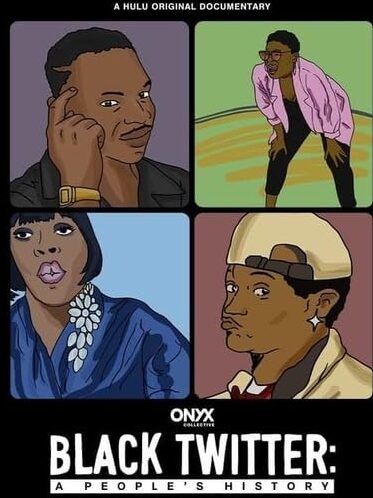When you hear talk about “Black Twitter”, it’s usually followed by questions from outsiders like, “What is it?” “How do you get in?” and our favorite “Who all gon’ be there?” HULU’s recently released documentary entitled “Black Twitter: A People’s History” aims to answer those questions and more, while diving deep into the revolutionary moments, and yes, memes, that drive cultural conversations, connections, and community via social media.
Prentice Penny is well-versed in Black Twitter (X) culture. Penny has been involved in the platform since the 2016 premiere of Issa Rae’s hit HBO comedy “Insecure,” for which he served as showrunner. As director and producer of the three-part Hulu documentary series, he feels this documentary was an essential part of the fabric in the evolution of the social movement amongst Black people online.
According to Penny, the recent sale of Twitter to tech mogul Elon Musk only amplified the importance of the documentary.
“It was like, ‘This is why, because these things might disappear tomorrow,'” he recalled. At a promotional event in Atlanta, he told NBC News, “I think we need this now more than ever when I see our history being changed, our books being banned.”
It makes you wonder, what will the history of Black Twitter look like in fifty or one hundred years? Is the community, or even better, the platform, going to exist at all?
The documentary was originally based on Jason Parham’s 2021 Wired article “A People’s History of Black Twitter”. While Parham is credited as a producer, other contributors also include Luvvie Ajayi, Jemele Hill, Van Lathan, Amanda Seales, April Reign (Creator of the of #OscarsSoWhite movement), Emmy-winning producer, host, and comedian W. Kamau Bell, Pulitzer Prize-winning journalist Wesley Lowery, bestselling author Roxane Gay, trans activist Raquel Willis, and a host of former Twitter employees, including God-is Rivera, who was once the platform’s global director of culture and community.
On March 8, the docuseries made its SXSW debut. After the documentary’s festival debut, there was initial backlash, raising concerns about the target audience for the series and the idea that celebrity voices would take precedence over those of regular people. However, what many may not understand is that a lot of the “famous” people you see now on Twitter (X) with verified blue checks, were just regular people when the platform and the community of Black Twitter first took off. Many of the voices that collaborated on the documentary deserve their story told as well because it’s not just about what Black Twitter is now, but where it started from and the stories that it’s built on.
“Black folks, there are a lot of different perspectives on this. Some have been very supportive, and some have been skeptical,” Penny remarked. “I can see why people are suspicious of anything related to our culture because we don’t get to tell the stories of the vast majority of our culture that was taken from us in the past.”
“When I was growing up, all you could name was Spike Lee,” he remarked. “But now that we can tell and direct our own stories, you can point to Issa Rae, Lena Waithe, or a plethora of other well-known people like Shonda Rhimes.”
Penny describes the docuseries as “a love letter,” that reflects the essence of Black culture. It covers a wide range of topics, including Black identity, misogynoir, President Barack Obama’s 2008 election, the aftermath of the Michael Brown shooting in Ferguson, Missouri, LGBTQIA issues, the rise of Donald Trump, the murder of George Floyd, Covid, the riot at the Capitol on January 6, 2021, and the glorious Alabama Boat Brawl. But one thing about Black people, we gonna get these jokes off. Which is why Black Twitter in itself has become a vessel of Black joy and Black creativity, that provides a safe space for us to be ourselves, with each other, and co-exist online together connected by real-time human experiences.
The documentary, “Black Twitter: A People’s History”, is now available for streaming on HULU.






